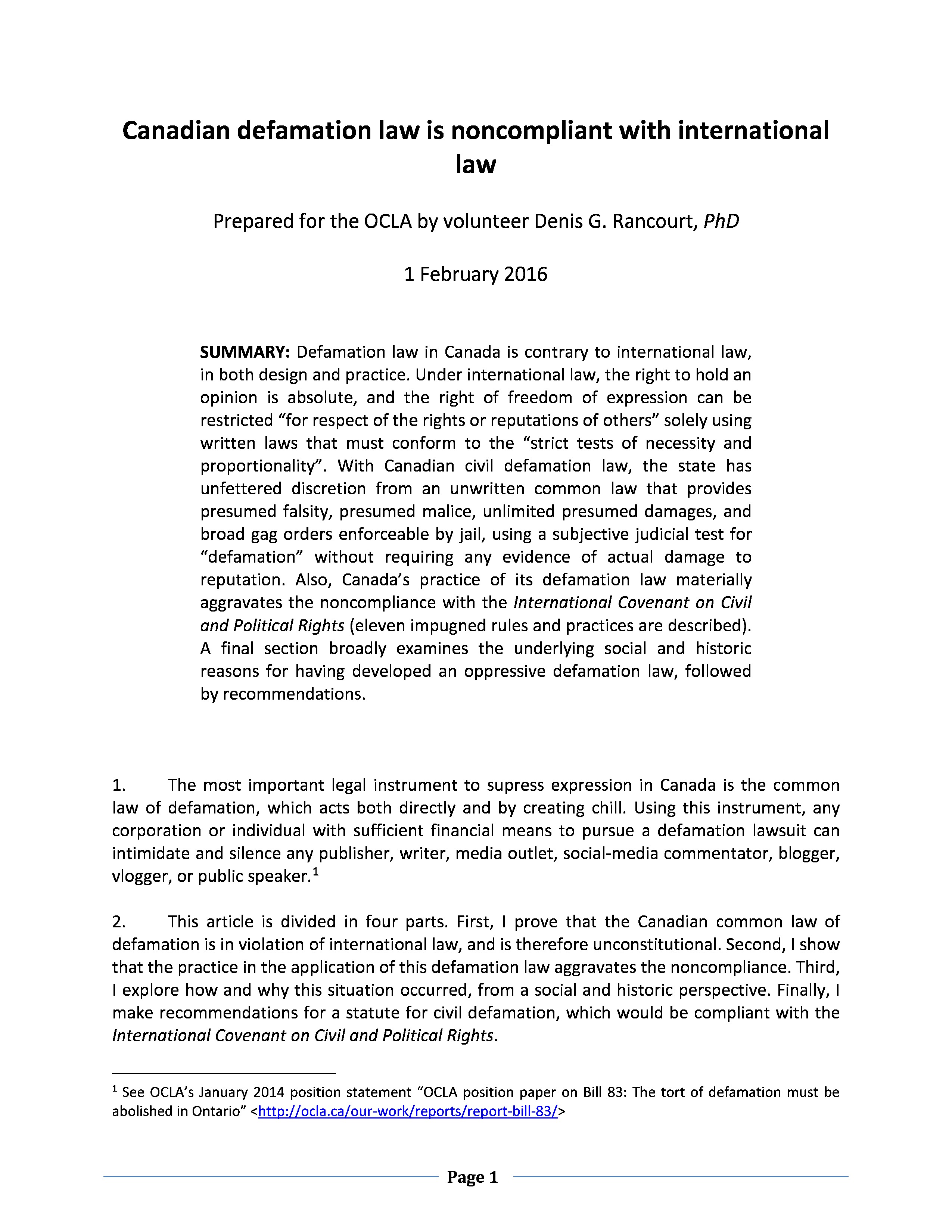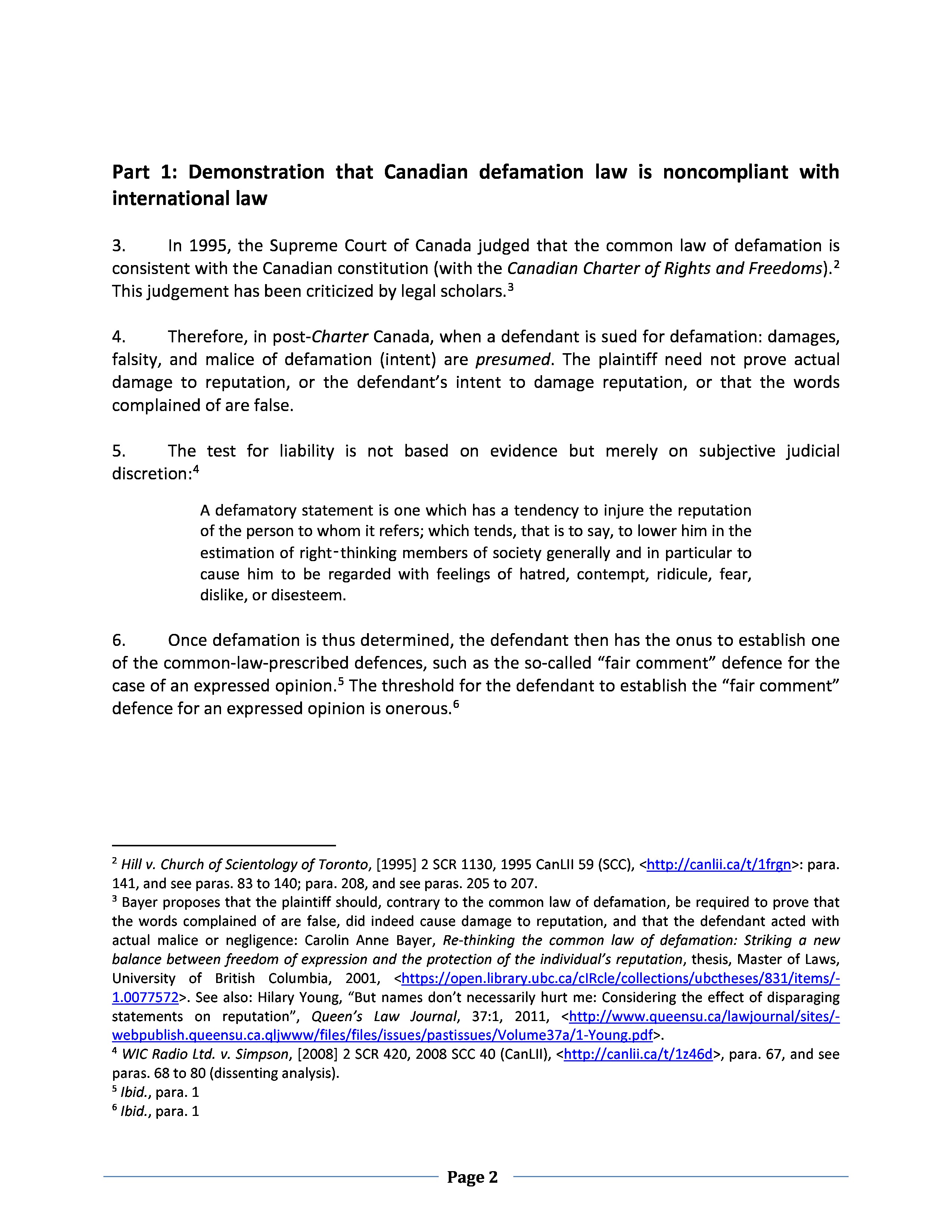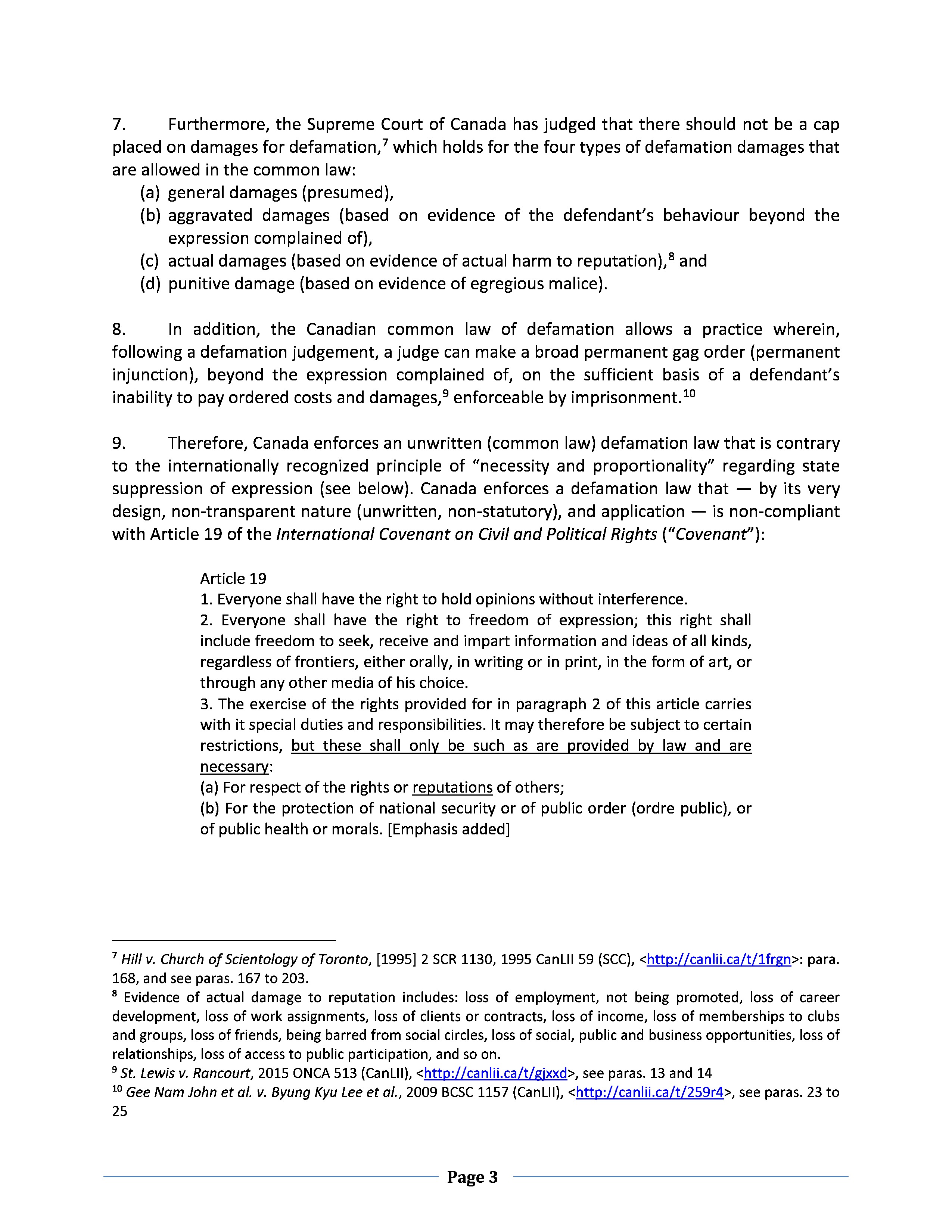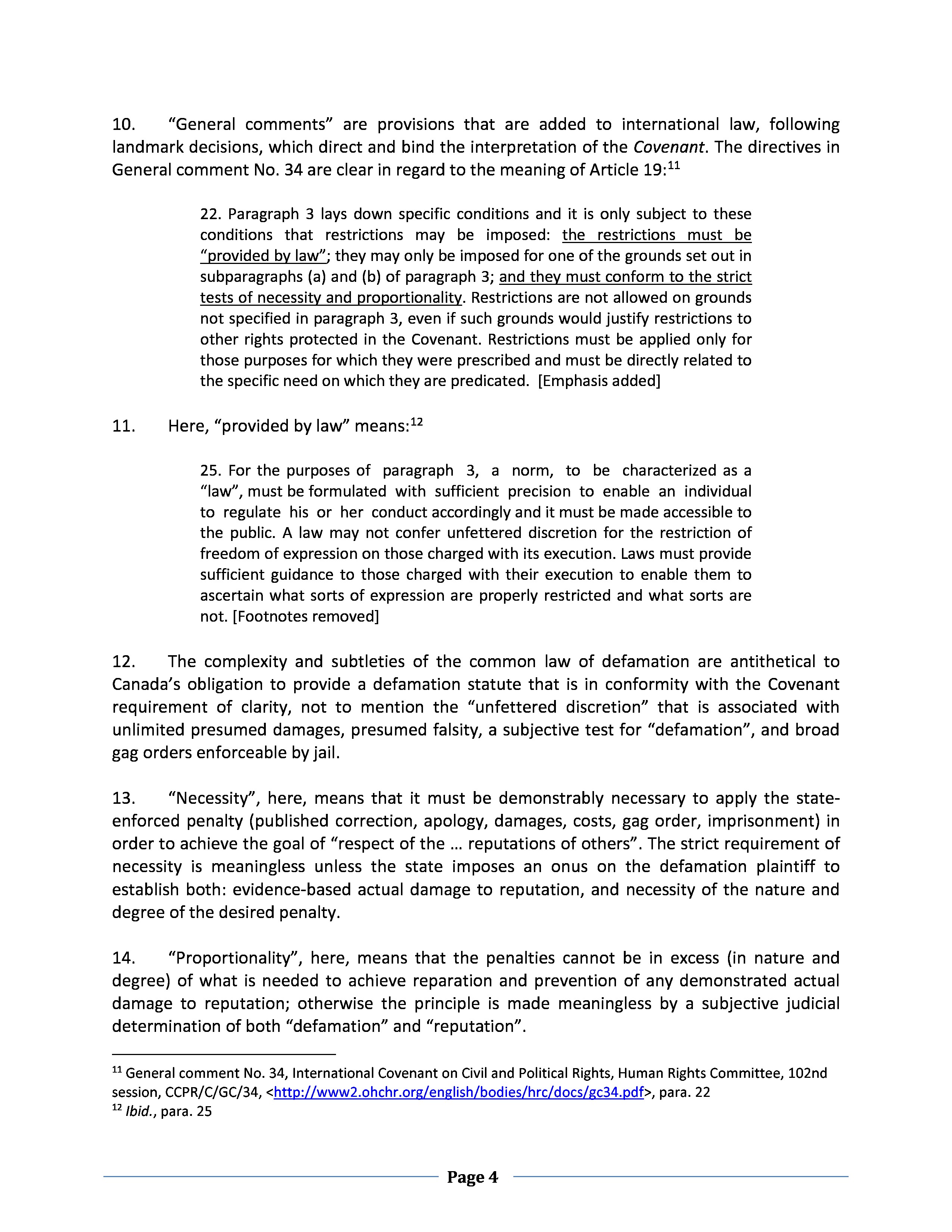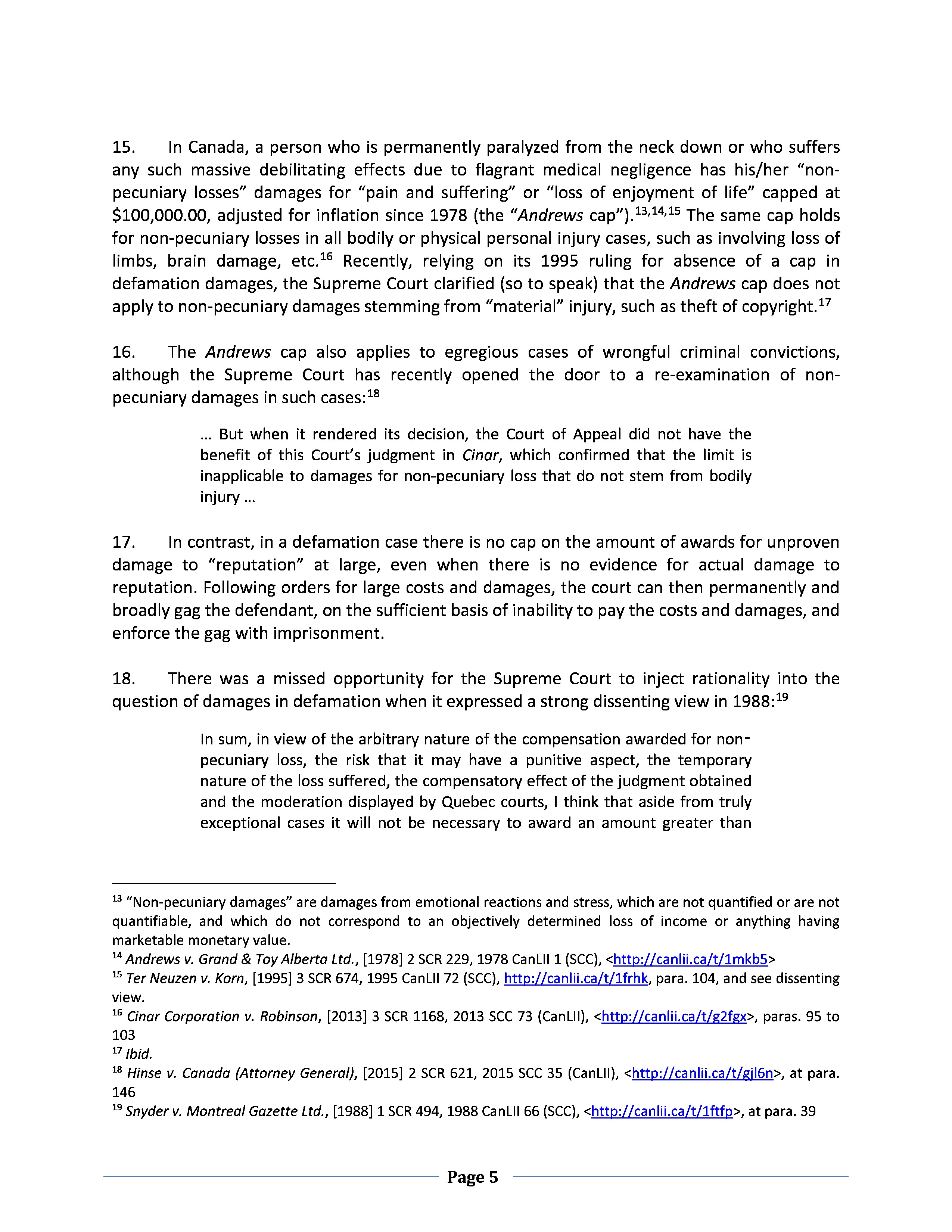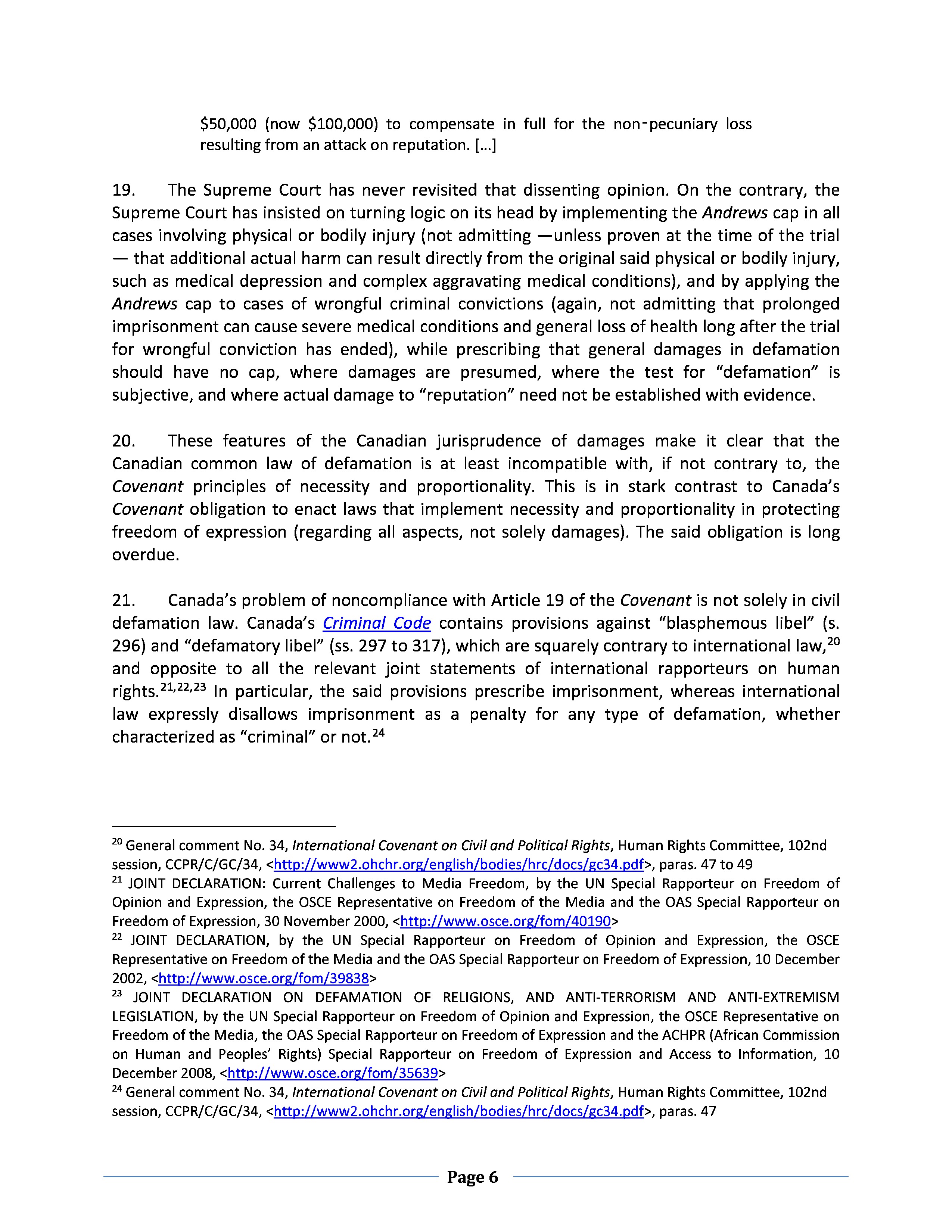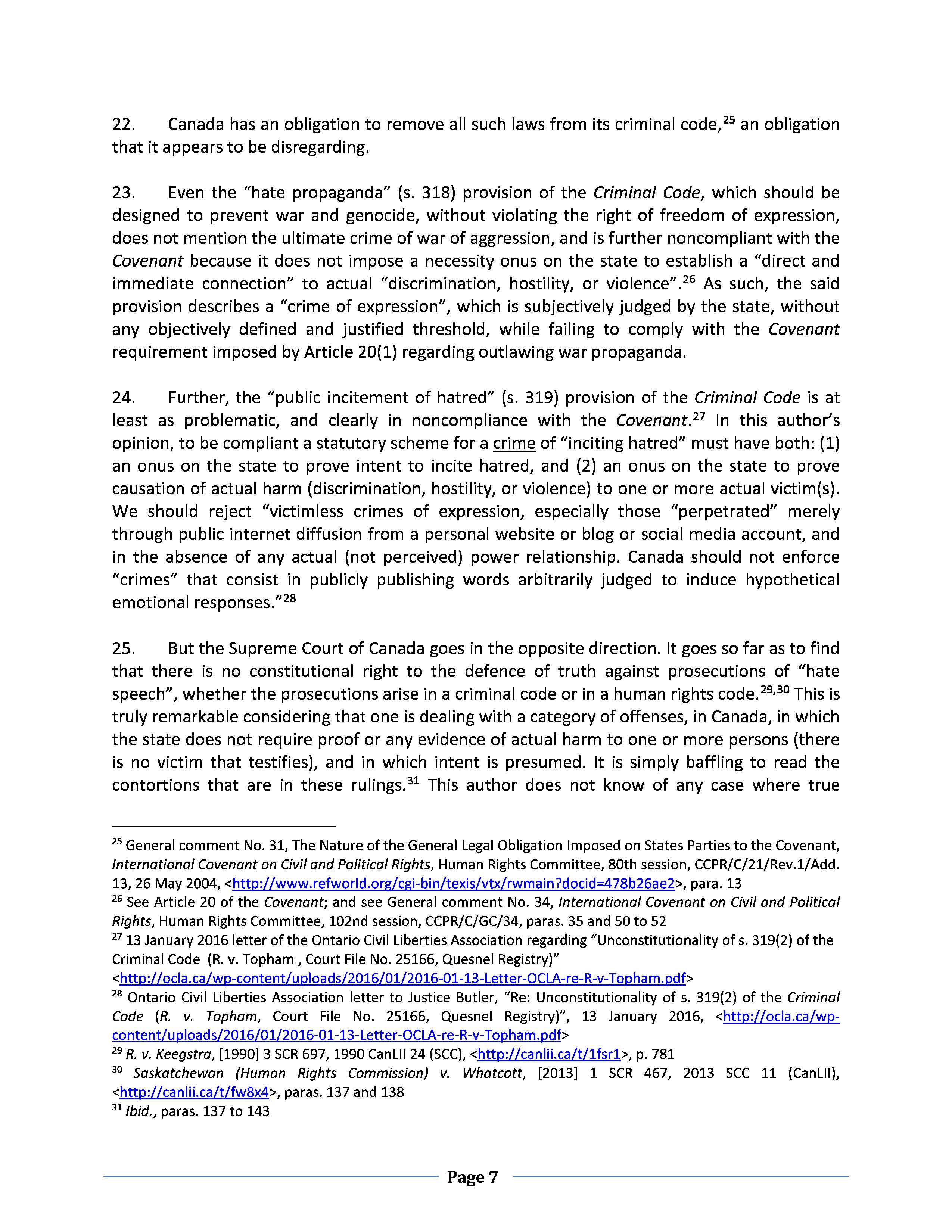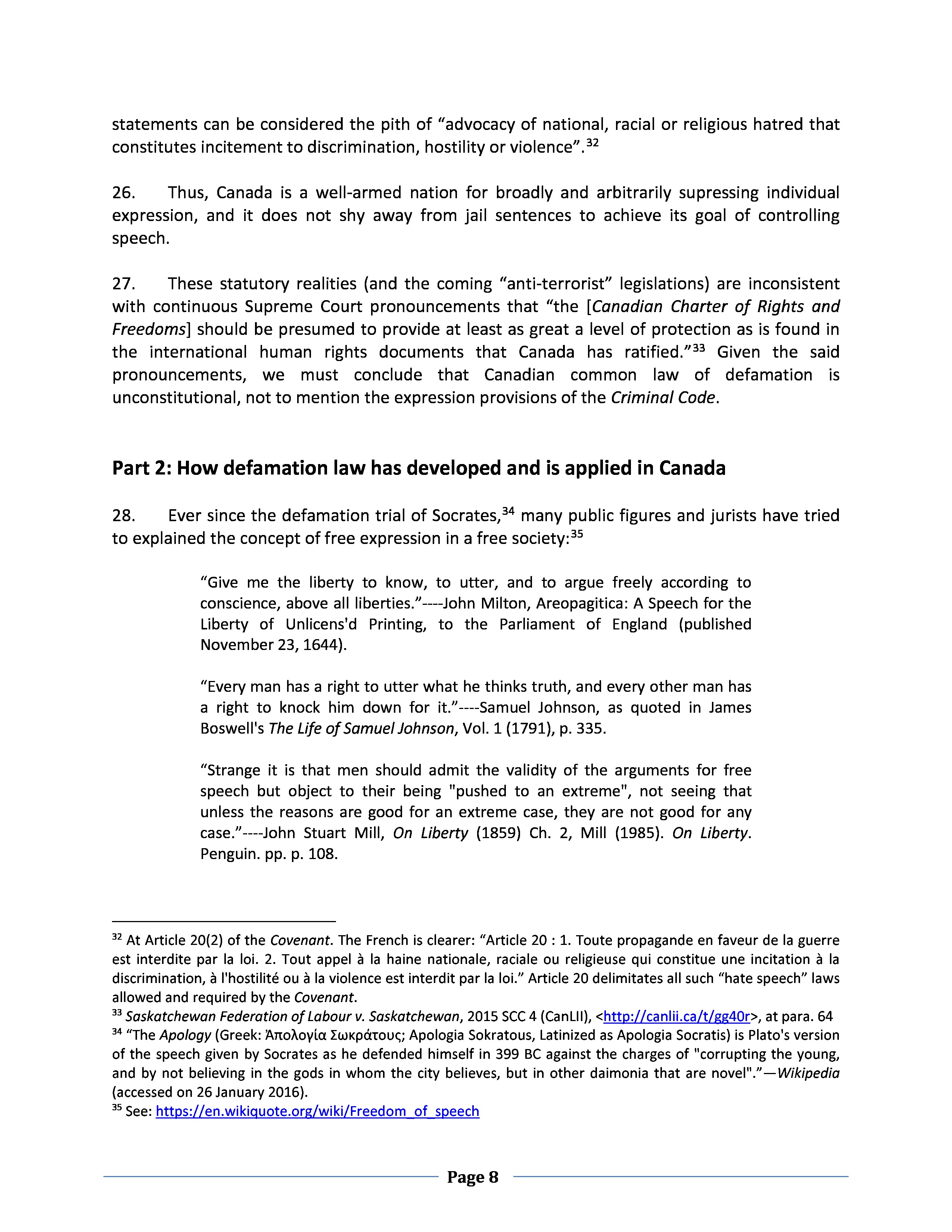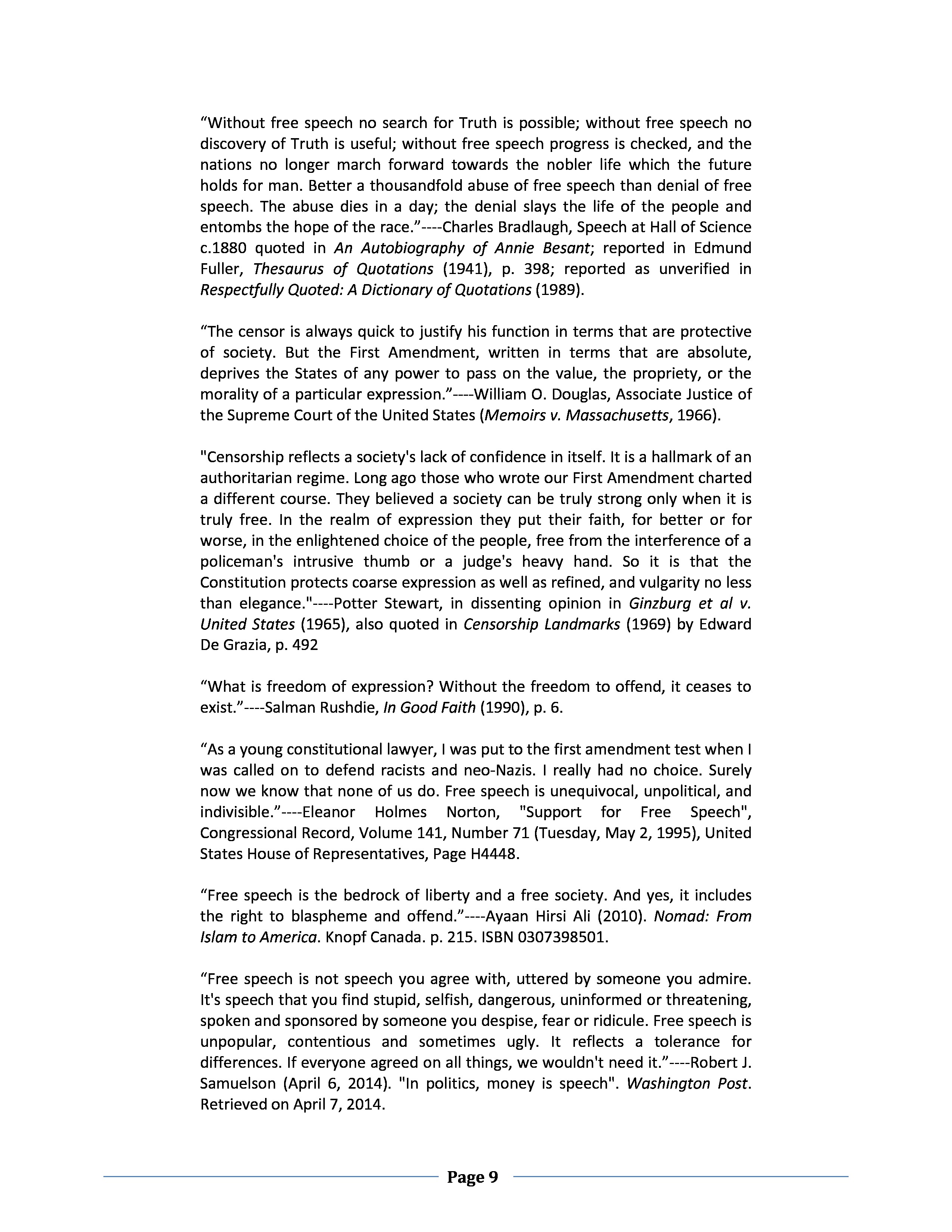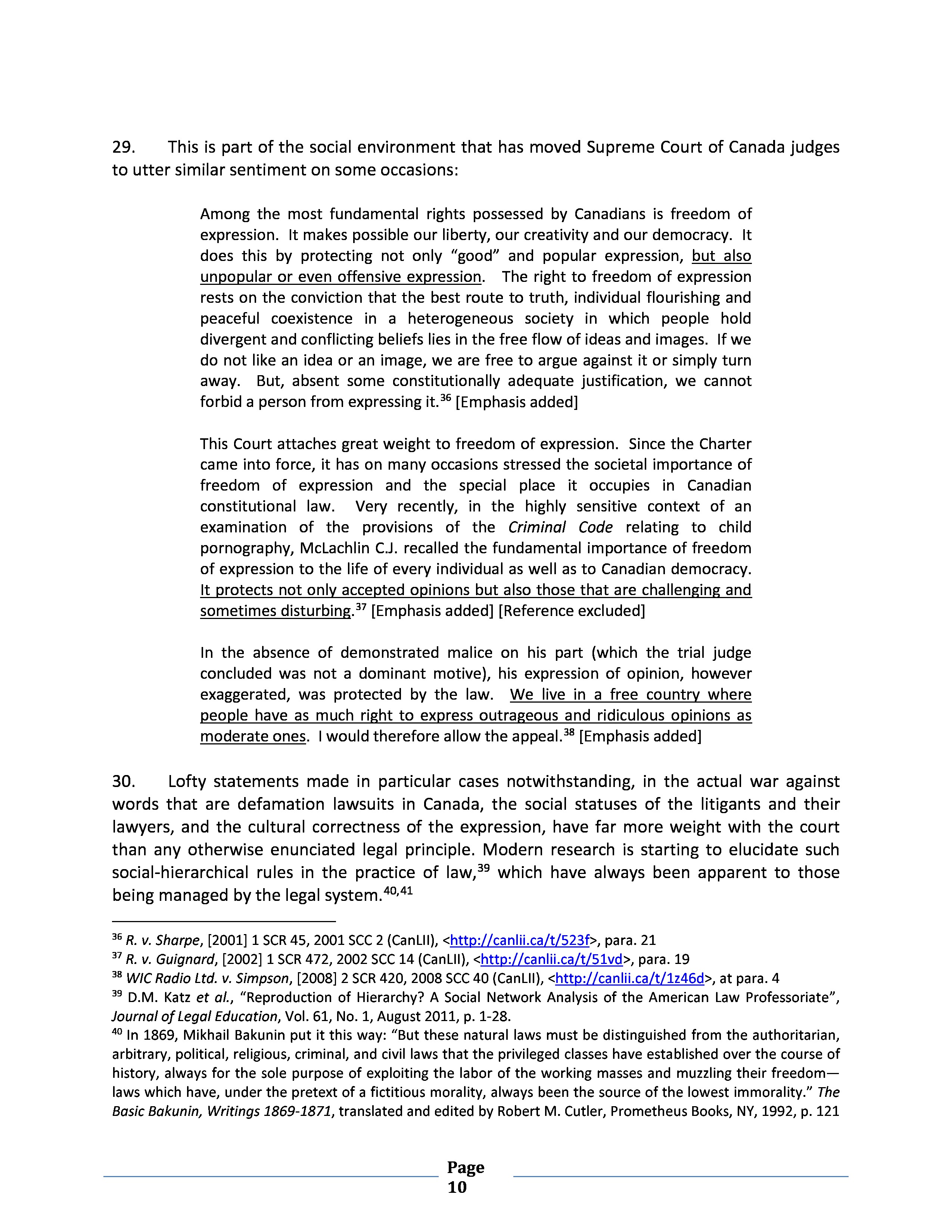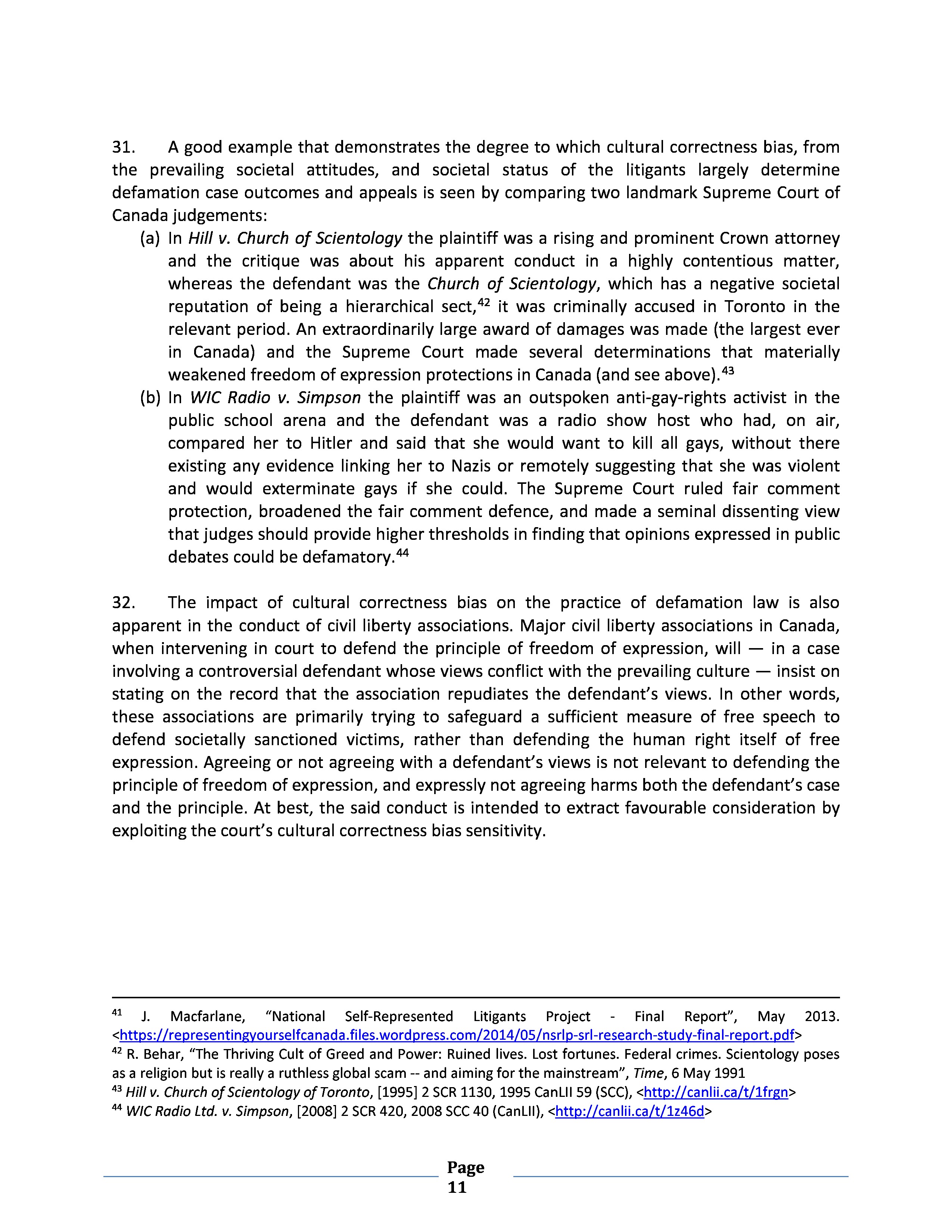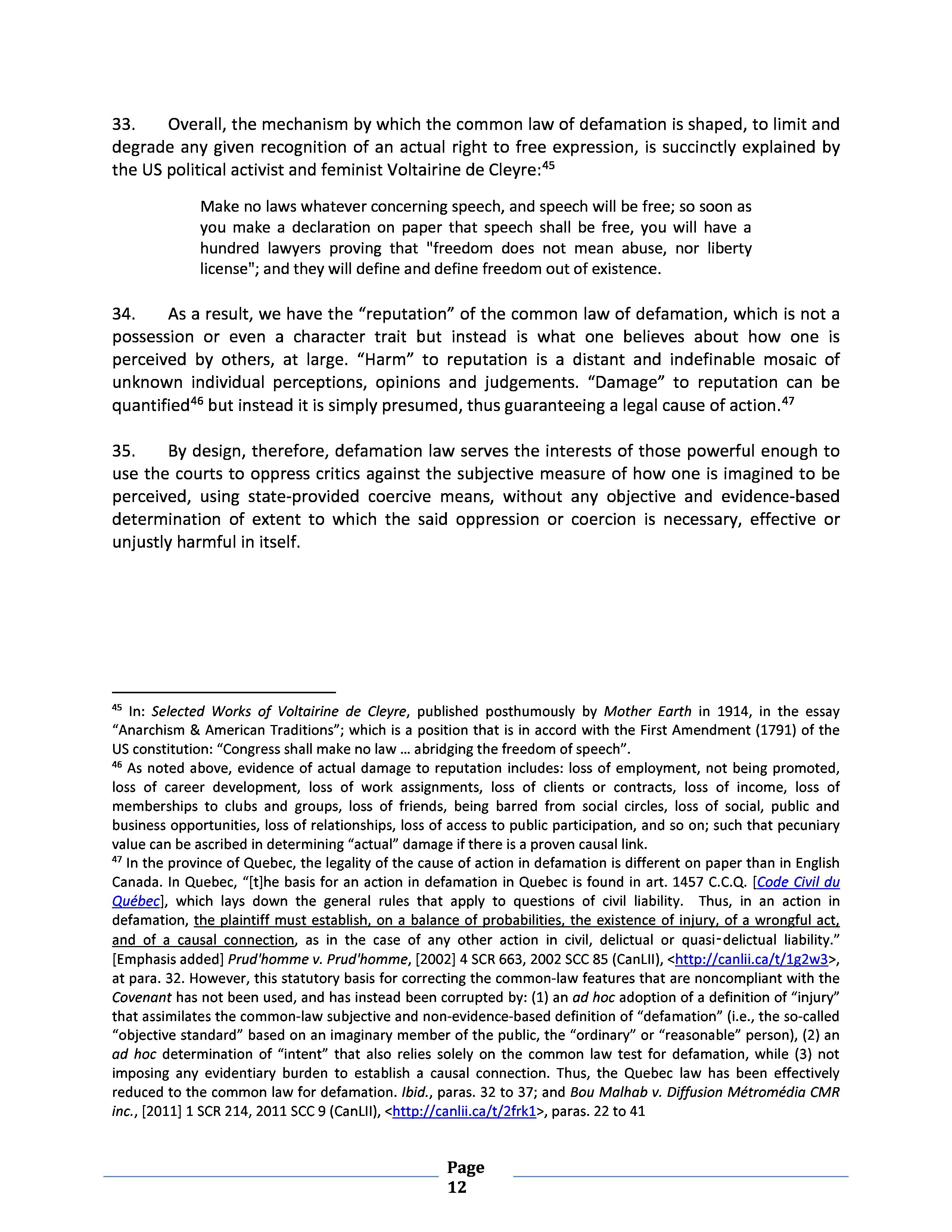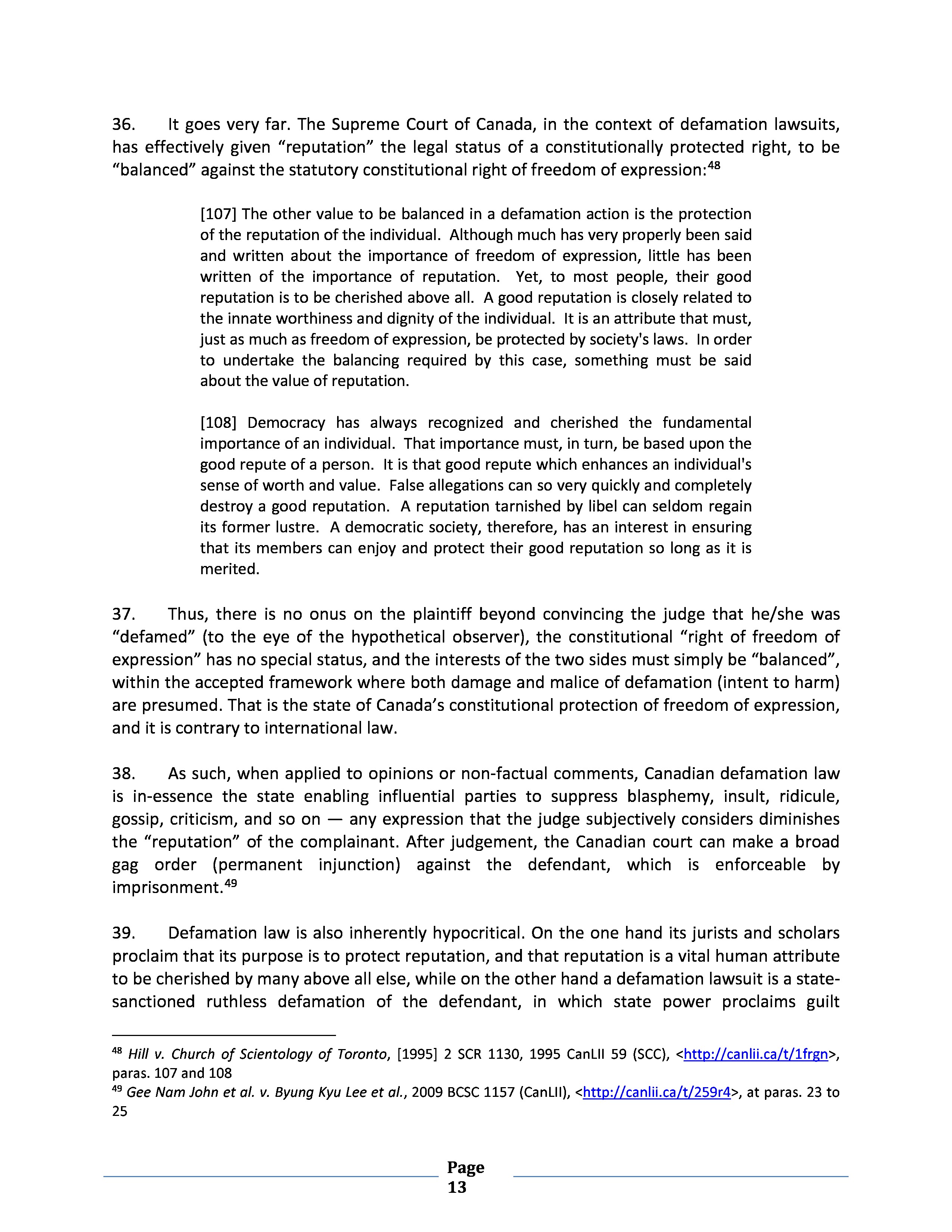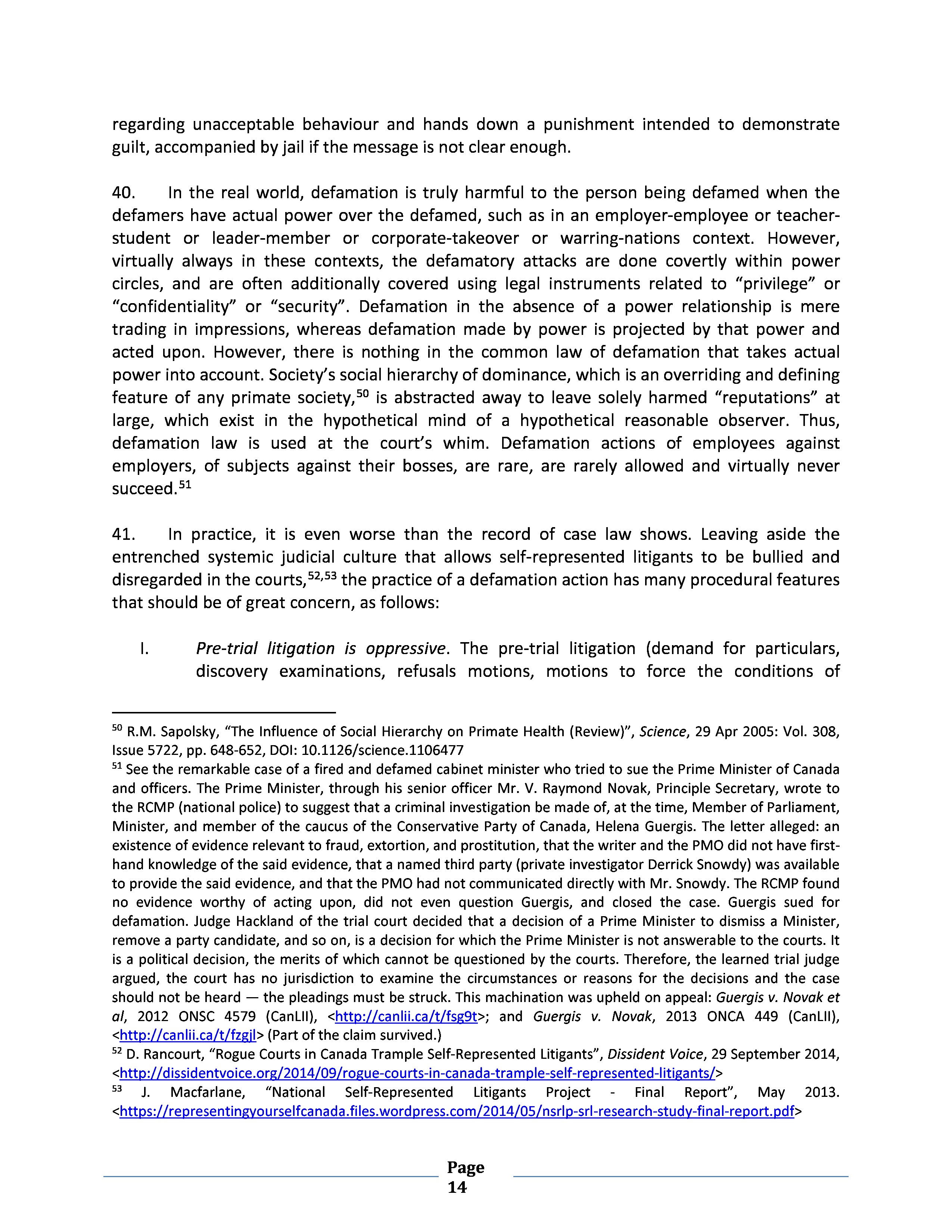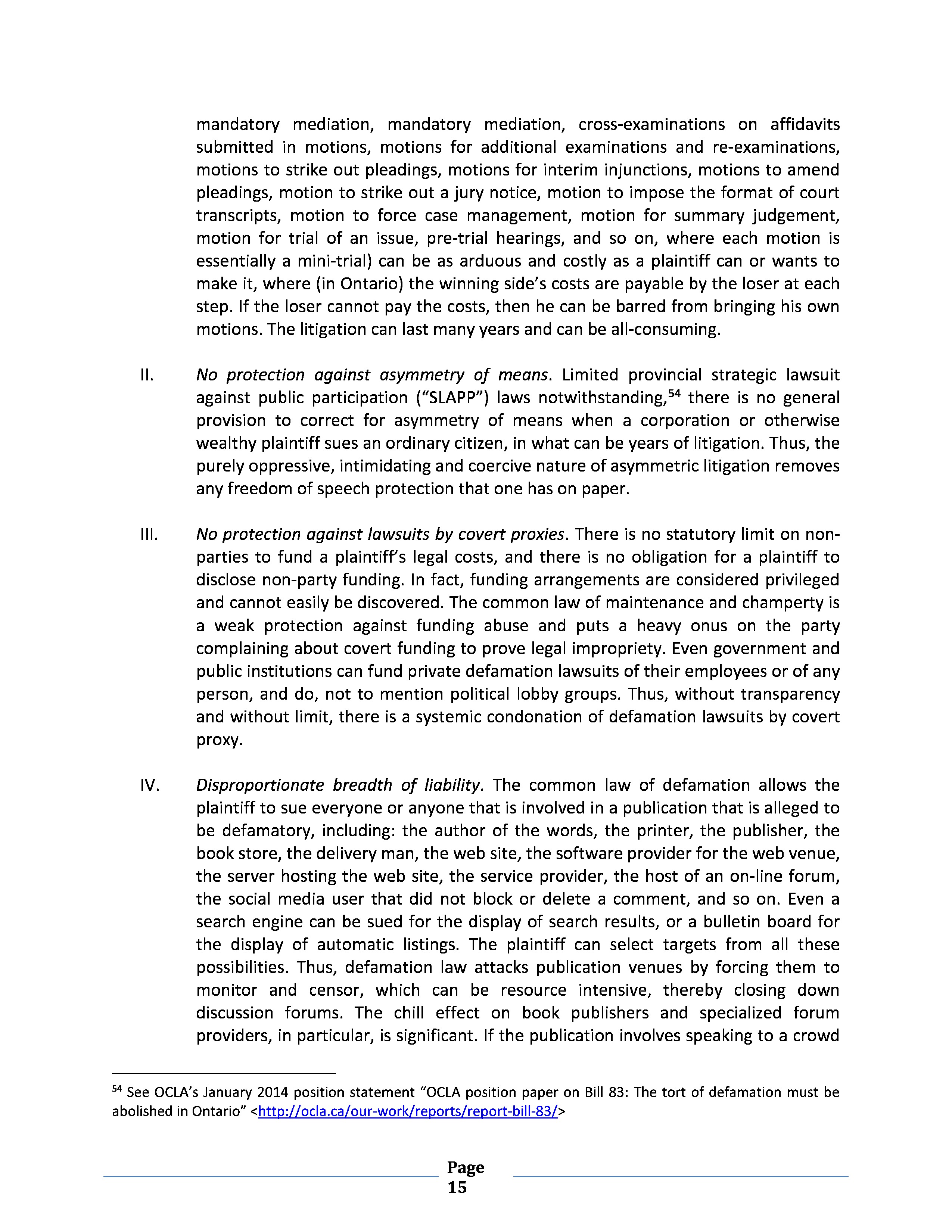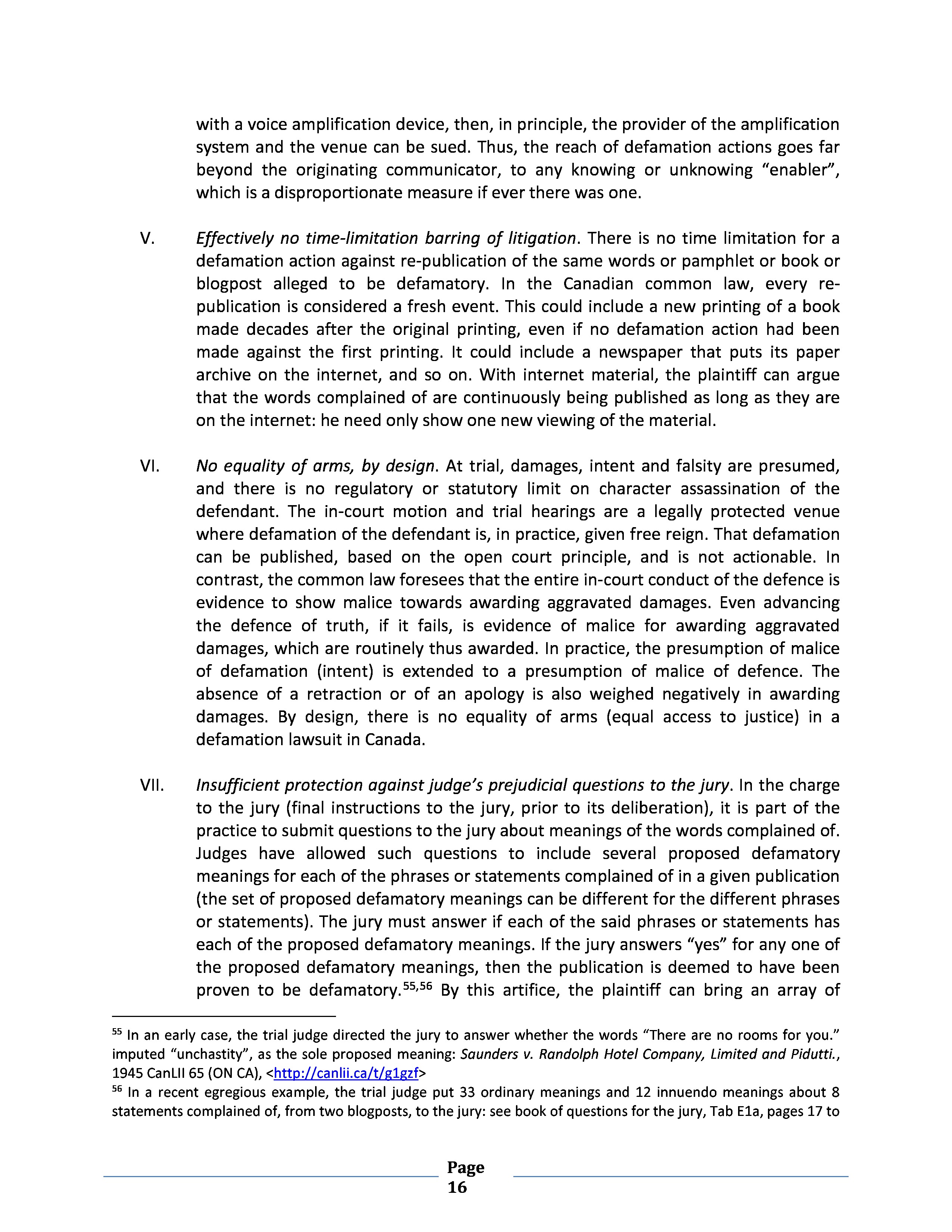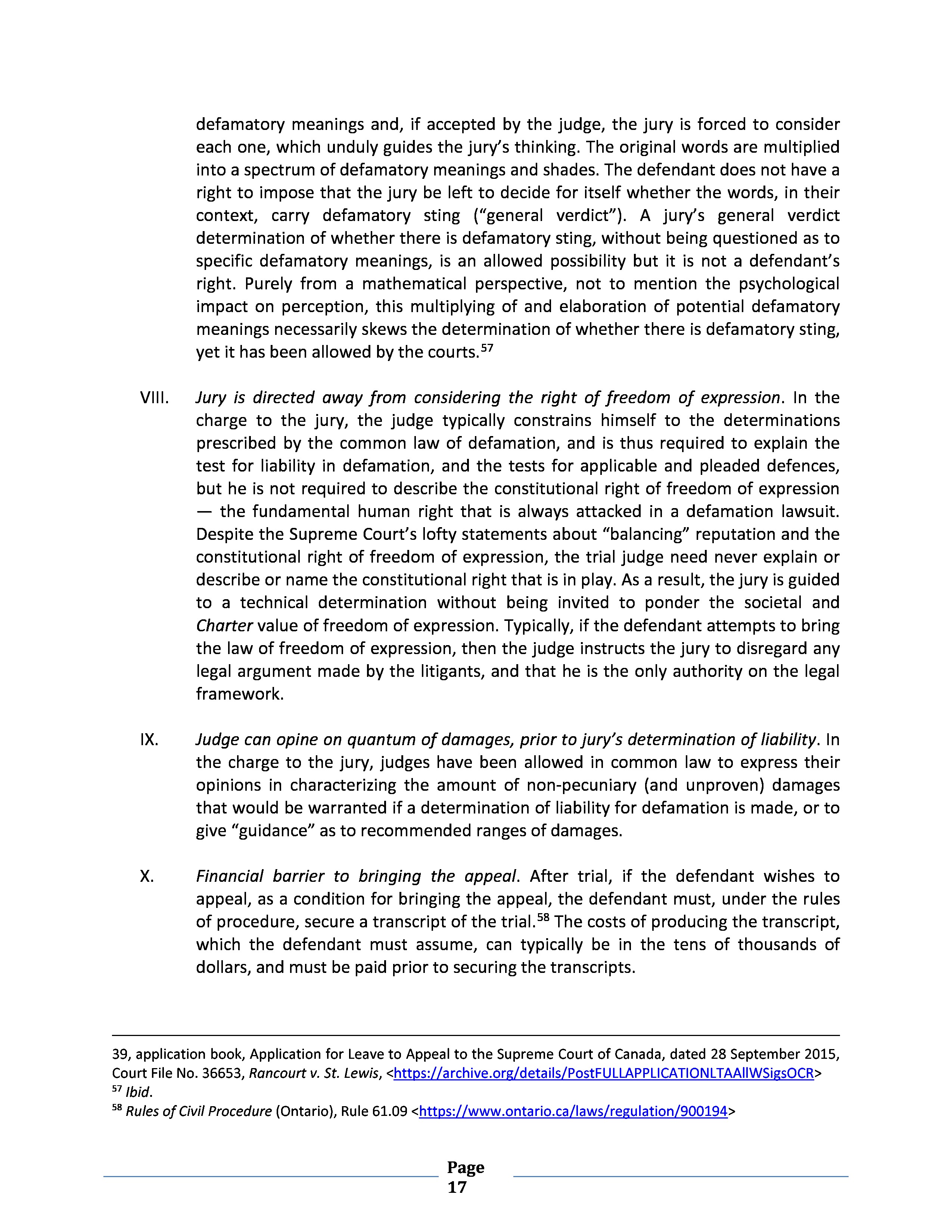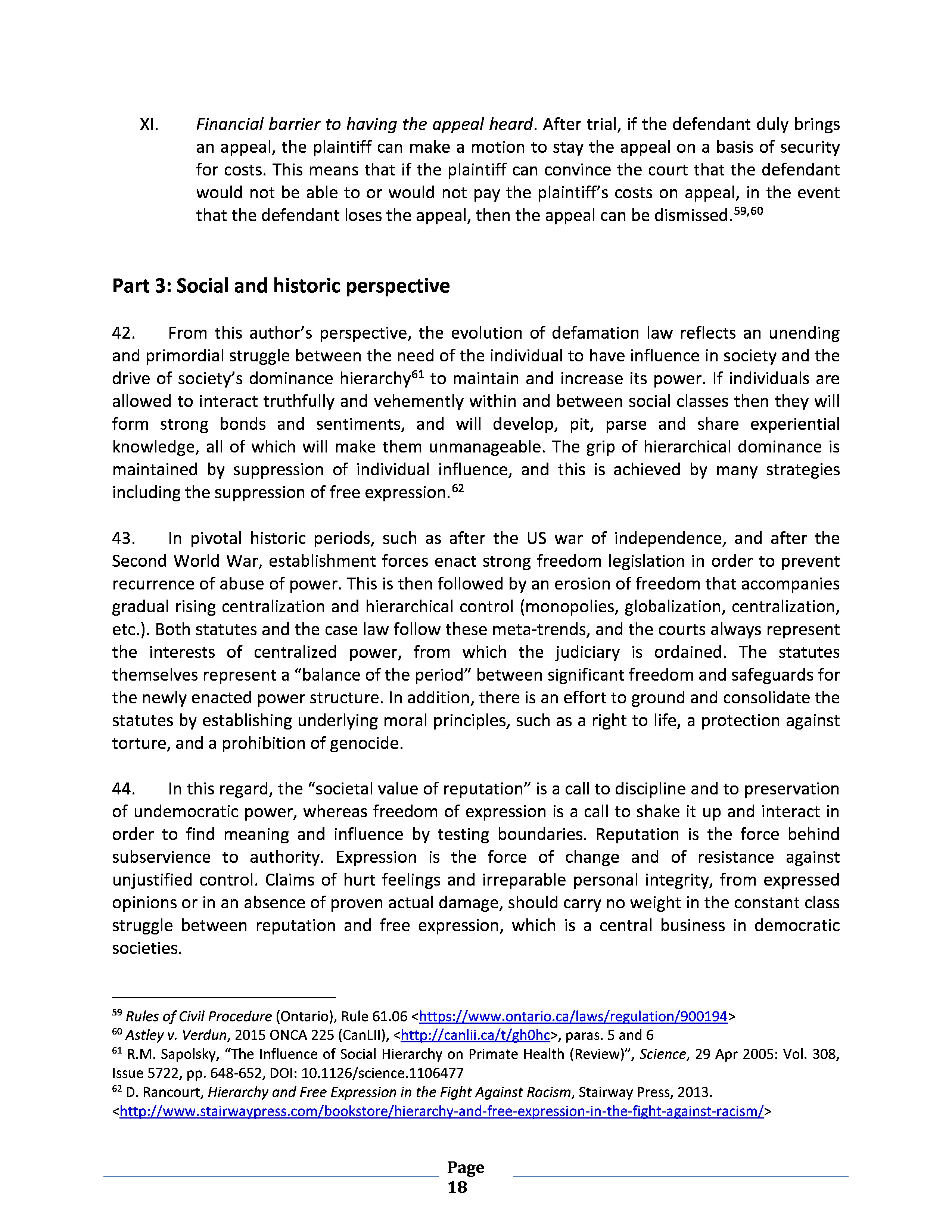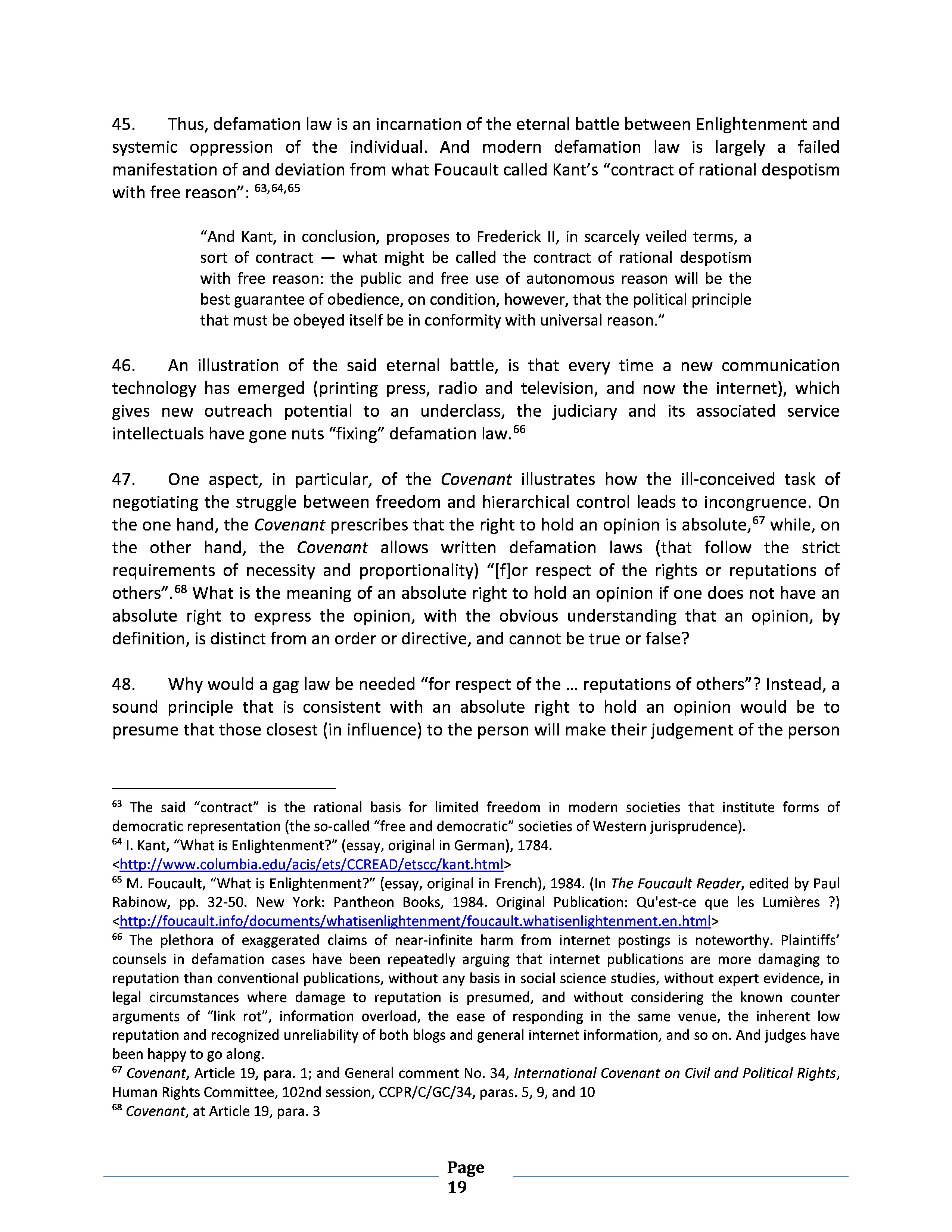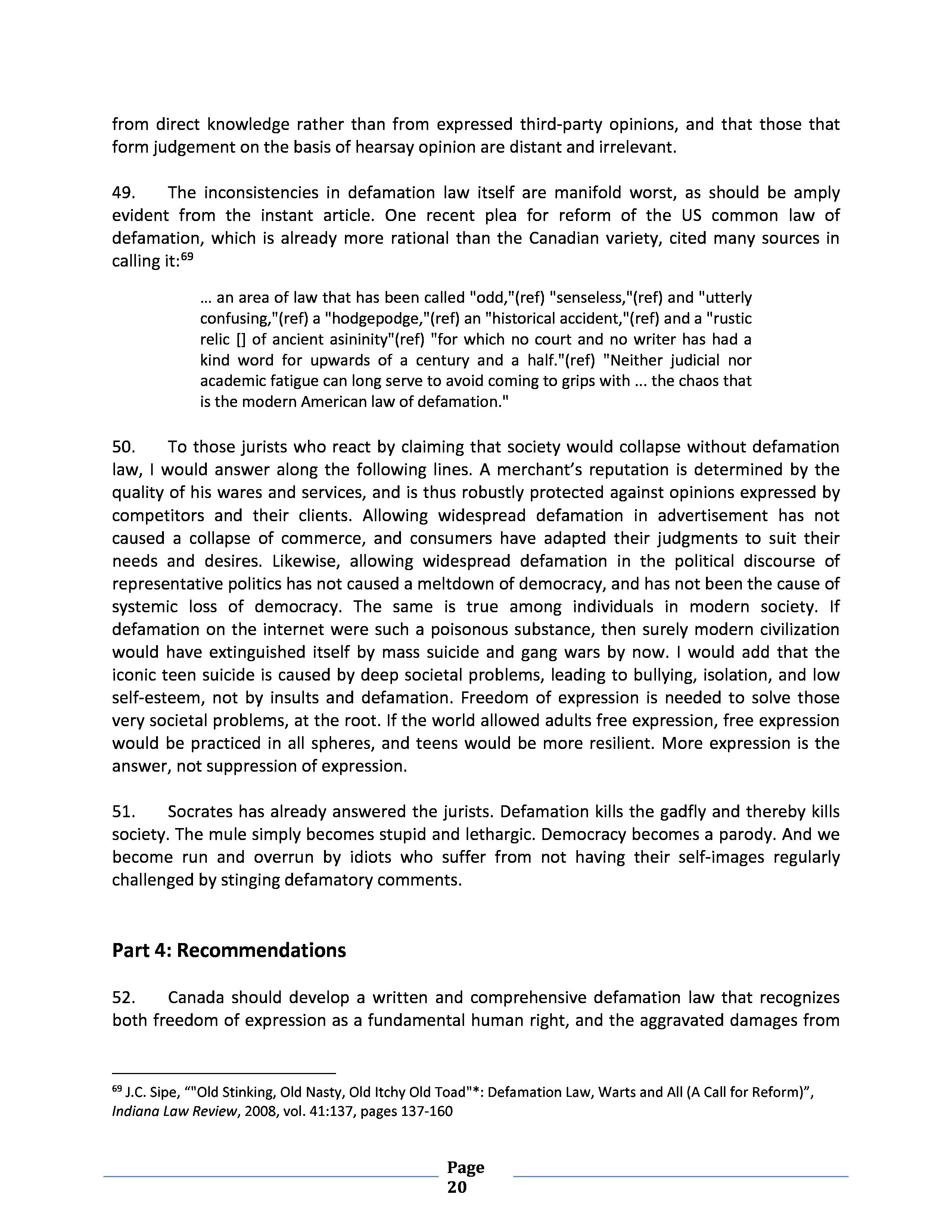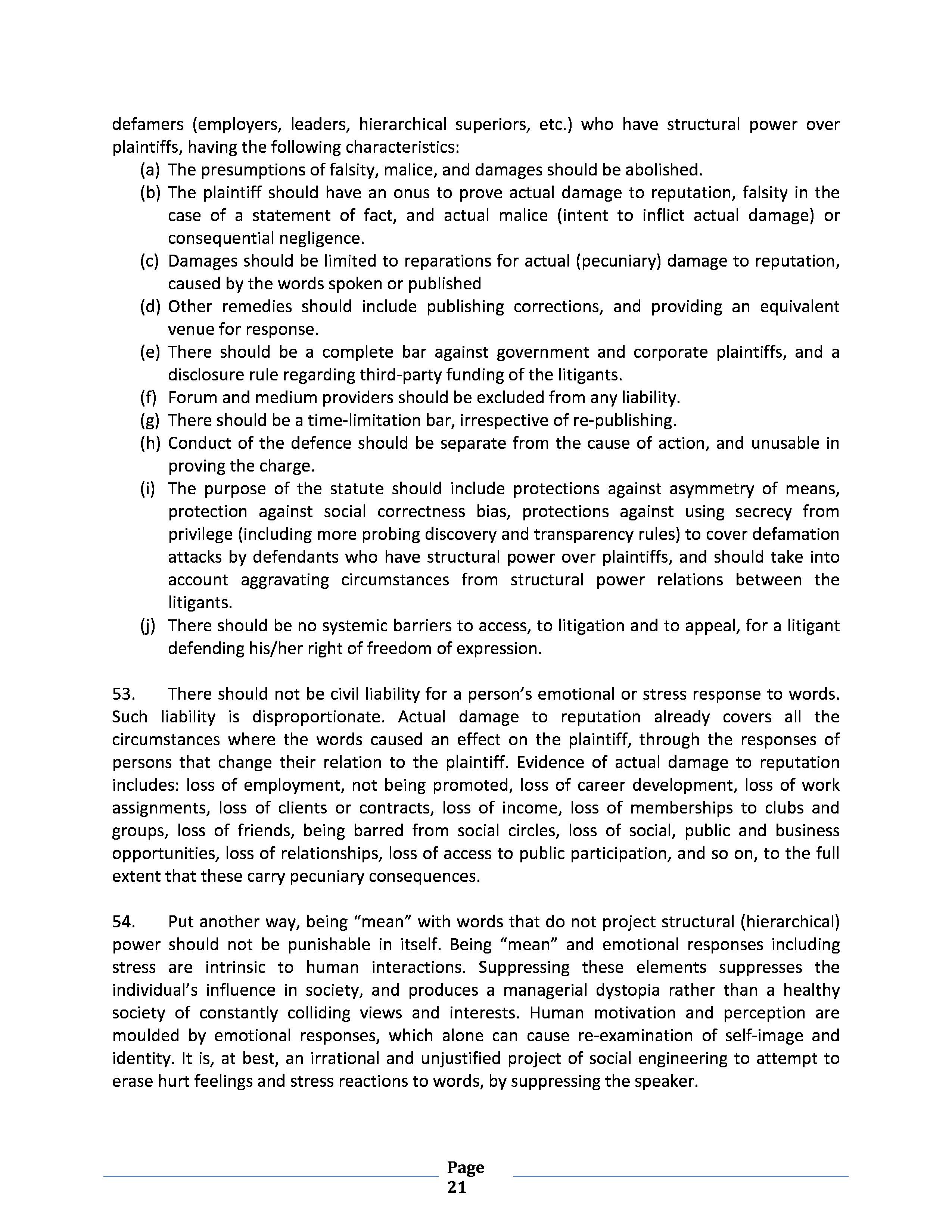Prepared for the Ontario Civil Liberties Association (ocla.ca) by volunteer Denis G. Rancourt, PhD
SUMMARY: Defamation law in Canada is contrary to international law, in both design and practice. Under international law, the right to hold an opinion is absolute, and the right of freedom of expression can be restricted “for respect of the rights or reputations of others” solely using written laws that must conform to the “strict tests of necessity and proportionality”. With Canadian civil defamation law, the state has unfettered discretion from an unwritten common law that provides presumed falsity, presumed malice, unlimited presumed damages, and broad gag orders enforceable by jail, using a subjective judicial test for “defamation” without requiring any evidence of actual damage to reputation. Also, Canada’s practice of its defamation law materially aggravates the noncompliance with the International Covenant on Civil and Political Rights (eleven impugned rules and practices are described). A final section broadly examines the underlying social and historic reasons for having developed an oppressive defamation law, followed by recommendations.
